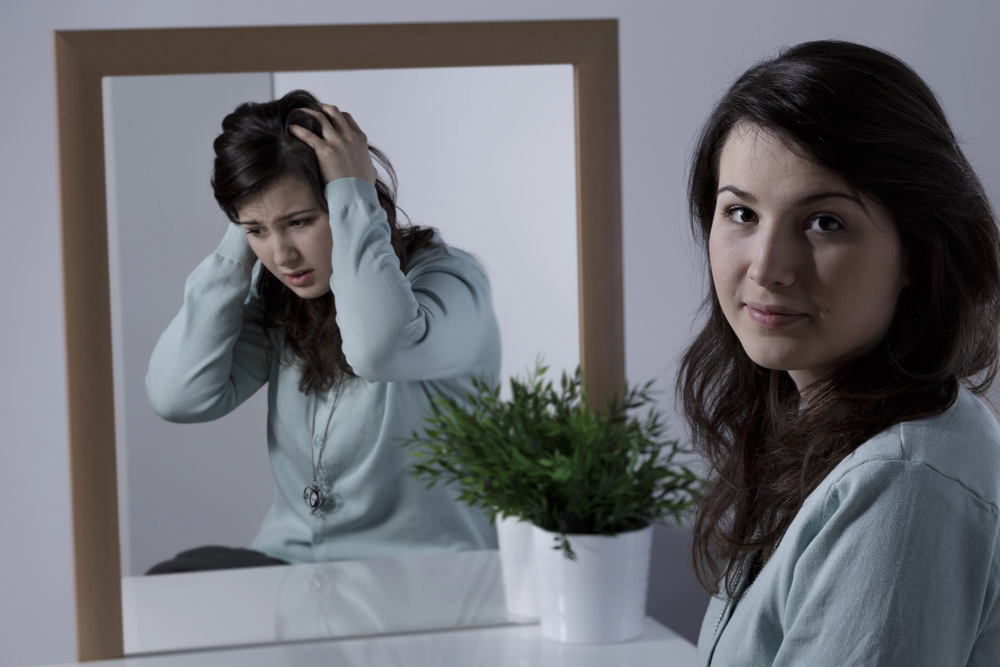Is My Spouse Bipolar?
Jump to Section
In any relationship, there are both high times and road bumps. However, when someone you love is bipolar, emotions can run high and low in a sporadic manner. It can be a stressful and confusing situation when your significant other suffers from bipolar disorder. If you’re currently asking yourself, “is my spouse bipolar” due to some of the challenges he or she is facing, it’s important to know more about the disorder and how you can help.
Bipolar disorder affects millions of people every single year, many of whom are wives and husbands to others. Understanding bipolar disorder and helping your spouse is a great way to build a strong relationship and improve the situation. While it may be complicated to predict, there are things you can do to help your spouse and yourself.
Let’s take a look at bipolar disorder and the telling signs associated with it. It’s important that you and your spouse are not alone in this journey, Free by the Sea has your back. Let us be your helping hand towards a happier and healthier relationship later on.
A Closer Look at Bipolar Disorder
Bipolar disorder is a mental disorder that occurs when a person has extreme mood changes. Typically, people with bipolar disorder will switch back and forth emotionally. They may switch from being cheery and happy to aggressive or depressed. This switch back and forth can be stressful to manage and cope with.
Bipolar disorder runs through families and continues to plague millions of people every year. The cause of the bipolar disorder is unknown as of right now but it can be managed with the right level of treatment. Let’s take a closer look at the two types of bipolar disorder and their effects.
Mania and Hypomania
Another thing that should be addressed is mania and hypomania. These episodes are major indicators of potential bipolar disorder in your spouse or loved one. Both hypomania and mania have the same symptoms (but mania is more intense), both involve the following behaviors:
- Decreased need for sleep
- Extremely talkative
- Easily distracted
- Poor-decision making
- Strangely jumpy, energetic, and wired
Manic Depressive Episodes
Another element of bipolar disorder is manic depressive episodes. A manic depressive episode can cause many issues in a person’s life. You may be able to notice clear difficulty in your spouse’s day-to-day responsibilities, work, or school. Symptoms of a manic depressive episode include:
- Fatigue
- Thoughts of suicide
- Inability to concentrate
- Insomnia or sleeping too much
- Restlessness and slowed behavior
- Loss of interest and pleasure in almost all activities
- Extreme weight loss (when they’re not dieting) or weight gain
- Feeling of hopelessness, emptiness, sadness, and overall depressed
Bipolar I vs. Bipolar II
There are two primary types of bipolar disorder, bipolar I and bipolar II. It’s important to know the difference so you can have an idea of what your spouse may be going through. Look out for these signs in your spouse so you can get the right treatment and stay informed.
Bipolar I
Bipolar I is considered to be a more severe version of bipolar disorder. It typically includes manic and unpredictable episodes that include:
- Impulsive behavior (usually with severe consequences)
- Hallucinations, paranoia, or delusions
- Hospitalization for safety
These manic episodes usually have the person seeking pleasurable activities without any care or regard for the consequences. They may indulge in anything from gambling to using drugs. It is important to be aware of these signs, especially if it’s a case of undiagnosed bipolar disorder.
Bipolar II
Bipolar II is not as severe as bipolar I and typically involves a person experiencing hypomanic episodes. These episodes include abnormal or out-of-character behavior which includes:
- Rapid speech behavior
- Lack of sleep (decreased need to sleep)
- Extreme energy and drive
When someone you love is bipolar and experiences hypomanic episodes, they may intensely pursue sex with you or other people. Since these episodes involve an energetic spouse, they may stay up all night to discuss things or ideas.
Is My Spouse Bipolar?

In some cases, bipolar disorder can be the cause of tension and troubles in a relationship among other problems. However, you and your spouse may not be aware that bipolar disorder is the root of the issue. Undiagnosed bipolar disorder can cause a series of issues with you or your partner without even knowing it.
It’s important to be aware of the signs of possible bipolar disorder in you or your spouse. Look out for shifts between extreme periods of sadness and periods of excessive excitement and energy. Let’s take a look at some of the other symptoms associated with bipolar disorder:
- Delusions
- Difficulty concentrating
- Rapid speech and thoughts
- Impulsive and dangerous behavior
- Risky and irresponsible driving choices
- Heightened self-confidence and optimism
- Extreme money spending and shopping sprees
- An over-the-top view of their abilities and qualities
Bipolar disorder in men and in women may differ. Depending on the situation, it may be necessary to get help. If you notice any of these symptoms in your spouse, Free by the Sea may be able to help you. Over time, more intense cases of bipolar disorder can become dangerous and risky, so it’s important to act fast.
Is My Husband Bipolar: Bipolar Disorder in Men
Bipolar disorder can affect men and women differently. For men, in particular, manic episodes tend to be more violent and aggressive. Reckless behavior and acting out are not uncommon in men with bipolar disorder. These impulsive and risky behaviors are heightened during these manic episodes.
Additionally, men are also more likely to turn to substance and drug abuse during manic cycles. They tend to self-medicate more than women do. It is also no surprise that alcohol and substances only make these symptoms worse in men. This can also lead to co-occurring disorders – where a person is struggling with both drug addiction and mental illness.
Is My Wife Bipolar: Bipolar Disorder in Women
Women are also affected by these manic episodes in a unique way. There are certain factors in women that may affect the shifts between depressive states and energetic episodes. Changing hormones during their menstrual cycle, menopause, and pregnancy can all dictate how severe a person’s bipolar disorder may be.
With both men and women, it’s important to be aware of these signs. While certain factors may increase the severity of the bipolar disorder, it is still a condition that needs treatment. Symptoms can continue to worsen and certain behaviors may lead to injury and death in the long run.
Making a Bipolar Relationship Work
If you are concerned that your husband or wife is dealing with bipolar disorder, there are a couple of things you can do to help. While relationships like this can be sporadic and stressful, it is not impossible to get help for a better future.
One of the most important things to keep in mind is that you are not alone. It is completely possible and achievable to make a bipolar relationship work. Getting the proper treatment and being a supportive force in your spouse’s life can make a world of difference.
Treating Bipolar Disorder

The first order of business is to get your spouse the proper treatment. Bipolar disorder is best treated by professionals in a trusted facility like Free by the Sea. You and your spouse don’t have to go through this process alone. While bipolar disorder is a lifelong illness, there are still options to manage its symptoms and episodes. Let’s take a look at some of the common ways to treat bipolar disorder.
Medication Options
Certain medications can help tame some of the symptoms of bipolar disorder. Usually, these medications include mood-stabilizers and antipsychotics. Different medications can also target certain aspects of bipolar disorder like depression and sleep patterns. Consult with your doctor to see if medication is the right choice for you or your spouse.
Therapy Options
Psychotherapy is one of the most common forms of treatment for cases of mental illness and drug addiction. What some of these therapy options aim to do is completely change how you think and how you view yourself. These individualized therapy sessions can be eye-opening and very effective in treating cases of bipolar disorder.
Options like cognitive-behavioral therapy (CBT) can offer guidance towards change. CBT helps a person change their thought processes and behaviors. Family-centered therapy is also another great option for you and your spouse who’s dealing with bipolar disorder. Free by the Sea offers a variety of therapy options just for you and your spouse.
Other Options To Try at Home
Treatment can come in other forms as well. Practicing regular exercising and anaerobic exercises can help depression and anxiety. Additionally, exercise can promote a better sleep schedule. Couples counseling is also an option as well, continuing to improve and nurture your relationship can be very beneficial.
Keeping a life chart of your mood changes and swings can be very useful for you and your spouse. Over time, this information can become useful in seeing patterns during and after treatment. This info can also be shared with your therapist for improved treatment.
Get Help Today
When someone you love is bipolar, it can be a tough and stressful experience for both you and them. Fortunately, you aren’t alone in your struggle. Let Free by the Sea help you towards a better life. We offer a variety of treatment options for drug addiction and mental health disorders like bipolar disorder. Contact us today to learn more about our resources and treatment options.

Dr. Richard Crabbe joined our team in 2019 as our psychiatrist and medical director. He attended the University of Ghana Medical School where he became a Medical Doctor in 1977. From 1978 through 1984, he was a medical officer in the Ghana Navy and provided a variety of services from general medicine to surgeries. He received his Certificate in General Psychology from the American Board of Psychology and Neurology in 2002.

 October 22nd, 2020
October 22nd, 2020










